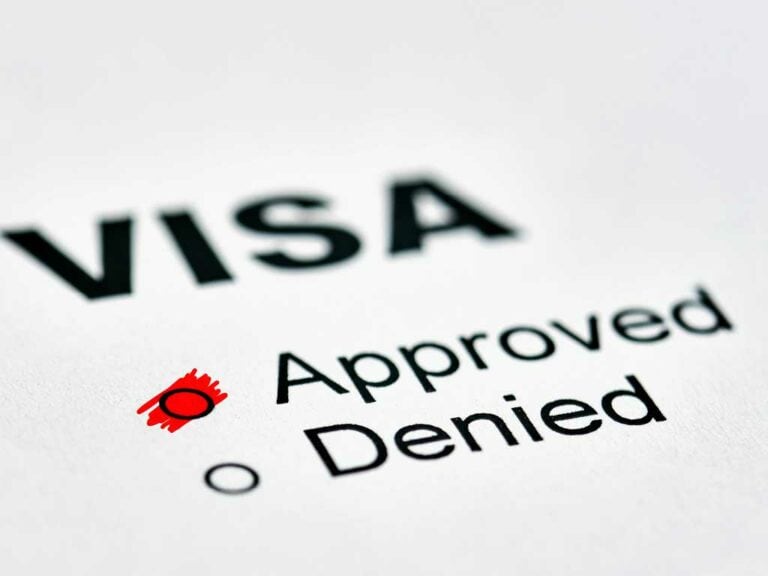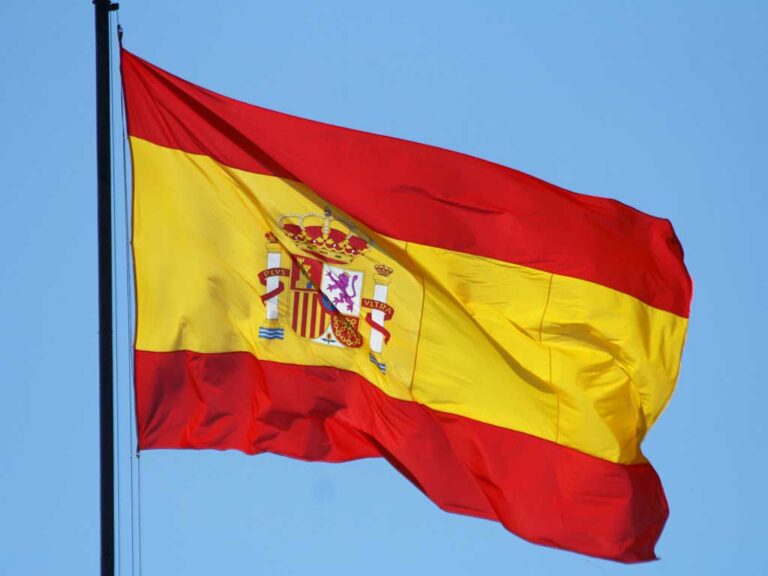Spain has always been a favourite destination for tourists, and even more so for digital nomads. We absolutely love Spain. Not only will you find world-renowned cuisine and tons of amazing places to visit, but it also has a relatively low cost of living.
Spain, eager to grow its economy and take advantage of the global trend towards remote work, has a visa project for digital nomads and remote workers called la Ley de Startups. In other words, a digital nomad visa to Spain!
I bring you fresh information on how to apply for this digital nomad visa in Spain, so long awaited by all nomad travellers and remote workers eager to travel and live in Spain. But first, here is a summary of the essential aspects:
- The delivery time of the visa is approximately 20 days.
- The application process can be done once in Spain.
- The digital nomad visa allows you to take your partner and children with you as long as you can cover the cost of living in the country.
- It is compulsory to take out travel insurance to apply for a visa. In my experience, I recommend that you take a look at the insurance offered by Adeslas, as it provides medical coverage throughout the country and meets the Spanish Government’s strict insurance requirements.
- This visa has become an effective way to obtain permanent residence in Spain.
- It offers tax benefits for self-employed workers.
The Spanish Congress of Deputies approved the law in December 2022, and the Government begin to receive applications from early 2023. At last, digital nomads will be able to live and work in Spain for a good period of time: 1 year!
We’re going to provide you with all the new information you’ll need to apply for the long-awaited digital nomad visa to Spain, which was designed specifically for nomadic travellers and remote workers eager to travel and live in Spain.

What is a digital nomad visa?
Following the pandemic-driven teleworking boom, countries have finally started to offer visas for digital nomads, and now there is a Spain digital nomad visa.
Although our nomadic lifestyle has been around for a long time, it wasn’t until 2020 that visas for remote workers started to emerge. The Estonia digital nomad visa was the first of its kind, and they also offer e-residency for remote digital entrepreneurs.
This type of visa is ideal for remote or self-employed workers who take the opportunity to spend long periods of time abroad, without the time constraints of tourist visas.
The “digital nomad visa” works differently in each country, and can even be called by different names. However, this type of visa is generally characterised by the fact that it is:
- A residence permit for more than 6 months (most of them for 1 year).
- only applicable for persons who have a foreign company or work remotely for companies outside the national territory.
- A visa with no right or permission to work locally.
How to apply for the Spain digital nomad visa?
If you want to apply for the digital nomad visa to Spain, you have two options. Apply directly through a consulate or embassy in your home country, or you can enter Spain using a tourist visa and apply from inside Spain, but don’t wait more than 3 months.
Once approved, you can stay in the country for one year.
If you subsequently wish to stay after that year, you will have to apply for a residence permit, which is done at the Large Companies and Strategic Collectives Unit.
Visa delivery time
The delivery time for this visa for digital nomads to Spain is approximately 20 working days from the moment you start the process, whether you apply online or in person.

How does the Spain digital nomad visa work?
Thanks to the Startups Act, digital nomad visas to Spain will be granted to remote workers and digital entrepreneurs. This residence permit was designed to attract international talent and investment, while boosting digital entrepreneurship in Spain.
The Spain digital nomad visa is only available to non-European Economic Area (EEA) nationals. People with a European passport can work remotely for up to 6 months without the need for official registration, thanks to being part of the EEA.
The digital nomad visa to Spain will also bring tax benefits for both companies and employees, as the Startup Act offers measures that are much more favourable than the country’s other permits.
Digital nomads will have to pay the non-resident income tax (IRNR), but not the income tax on non-resident persons (IRPF). Also, the usual foreigner identification number (NIE) will not be expressly required, just the Spanish tax identification number (NIF).
With this law, Spain also appeals to expatriate Spaniards who have not resided in the country for at least 5 years, who are digital nomads or entrepreneurs. In these cases, the same visa benefits will apply.
Duration of the digital nomad visa to Spain
The duration of the digital nomad visa to Spain will be one year, with the opportunity for successful remote workers to extend their visa to up to five years.
After this period, you should be eligible to apply for permanent residency in Spain. Please remember, however, it’s still essential to take out travel insurance!
What activities are permitted and prohibited under the Spain digital nomad visa?
In terms of the work activities that can be carried out with this visa, the visa states that all those that can be carried out remotely, and through the use of computer systems, are permissible.
In addition, they emphasise that the main source of income must come from companies based abroad or a portfolio of clients also from outside Spain. In this sense, Spanish companies can work if the profits do not exceed 20% of the total turnover.
If you want to learn more about how you can work remotely in 2025, check out our article on the best jobs for digital nomads here.
What nationalities can apply for the Spain digital nomad visa?
Regarding the nationalities allowed, the visa for digital nomads in Spain allows any non-EU worker to apply for this visa.
However, it is essential that they have professional training, a university degree or more than three years’ experience in the relevant field of work.
It is also important that the digital nomad has not resided in Spain for the last 5 years prior, and does not have a criminal record.

Can you apply for a digital nomad visa if you are in Spain?
If you are in Spain on holiday, you should know that it is also a good opportunity to apply for the digital nomad visa, and 100% online!
The process is simple and is done from the website of the Spanish Ministry of Foreign Affairs.
Can you take a partner or children with you on a nomad visa in Spain?
Many digital nomads want to know if they can take their partner or children with them when they embark on this adventure. Well, in the case of Spain, yes, you can!
Both the partner or spouse, and the children, can obtain the same visa as the applicant as long as they can prove that they have sufficient funds to cover the cost of living for each of them.
More specifically, the following persons may accompany the visa applicant:
- The spouse or unmarried de facto partner.
- Minor children.
- Children of legal age, if they are economically dependent on the applicant.
- Other descendants who are economically dependent on the applicant.
Requirements for the Spain digital nomad visa
To obtain the digital nomad visa in Spain, you must meet the following requirements:
- Apply for a NIE (foreigner identification number).
- Fill in the form and pay the fee.
- A recent passport-size photograph and a valid passport (valid for at least one year and issued no more than 10 years ago).
- Take out health insurance that provides coverage comparable to that provided by the National Health System.
- Have bank proof of financial solvency, which for the digital nomad visa in Spain is 200% of the SMI (you can see the current figure here). To this 200% must be added 75% for the first accompanying family member and 25% for other family members.
- Prove that you have a minimum duration of continuous employment with at least one company.
- No criminal record.
It’s worth mentioning here that this website also has a page dedicated to providing information for British passport holders travelling to Spain following Brexit.

Who can apply for the digital nomad visa to Spain?
To apply for the digital nomad visa in Spain, you must fit one of the following profiles:
- Be a demonstrable digital nomad in Spain, with professional experience of at least 3 years, or accredit a degree or postgraduate qualification.
- Employees who perform their services for companies located outside Spain.
- Self-employed workers. In this case, you will be able to work for companies located in Spain, but they cannot exceed 20% of your total work.
- Digital entrepreneurs.
As you may already know, people with a European passport can work remotely for up to 6 months without the need for official registration, thanks to being part of the community.
✅ Advantages of the Spain digital nomad visa
Visa applicable without risk of refusal.
Possibility to live in Spain for up to 5 years.
Being able to register a company with tax benefits.
Return opportunities for UK citizens and businesses affected by Brexit.
The creation of more Co-working and Co-living spaces in Spain.
The possibility to obtain permanent residence in Spain.
Spain has the potential to become a hub for digital entrepreneurship.
❌ Disadvantages of the Spain digital nomad visa
The requirements may seem demanding.
Ownership of a digital business is not a sufficient requirement.
Startups older than 5 years cannot apply for this visa (or 7 years for startups in strategically important sectors).
No more than 20% of the total revenue can be generated locally.
Digital nomads would enter the tax system with payment of tax.

Can I use another visa to live in Spain and work remotely?
Until now, digital nomads in Spain were playing a bit of a gamble in staying more than 3 to 6 months, and some had to resort to work or residence visas that ended up affecting the nomadic lifestyle.
Non-profit residency, although not a specific visa for digital nomads, could be applied in some cases. However, without legal advice, applications may be rejected. There were some cases of refusal of this visa, as the visa was designed for different purposes.
This visa allows you to reside in Spain for one year and the possibility of renewing it for up to 2 more years, but on the condition that you do not exercise any lucrative activity in the country.
This permit is intended for people who have sufficient funds to guarantee the first year of stay. That is, about €32,000. Alternatively, they can demonstrate financial benefits from passive income, such as property or other assets.
In my opinion, this visa can be a bit complicated to obtain. That’s why the new digital nomad visa to Spain is such a great opportunity for digital nomads and digital entrepreneurs!

How to travel to Spain at the best price in 2025
If you’re headed to Europe on a digital nomad visa to Spain, you want to save money where you can, so you can make the most of your experience.
Choosing insurance that is tailored to your needs is vital, but remember that the following factors play a crucial role as well:
- Flights
- Accommodation
- The card you use
- How you book your activities
If you follow the following tips, you’ll have more money left over to enjoy your time in Spain and do the things that make you happy!
- Fly to Spain at reduced prices!
You know, flights don’t cost the same from all countries! To pay for my cheapest flights, I use NordVPN.
Basically, it’s a private network that allows you to access Internet sites from locations other than your own, and this can have some serious benefits:
In July 2025, enjoy a 59% discount on NordVPN.
Click here: Activate Discount
Flights from Barcelona to Buenos Aires don’t cost the same if you buy them from Spain as from India, for example. So, once you’ve installed NordVPN, simply access websites like Skyscanner and compare prices by entering as if you were browsing from different countries.
The 8 countries from which it is cheapest to buy flights are: Malaysia, Bulgaria, India, Turkey, Romania, Indonesia, Portugal, and Thailand. Once you have NordVPN, head over to Skyscanner and start paying reduced prices for flights all over the world!
- Stay at a discount in Spain all year round
Access Booking.com now and get discounts of up to 15% in July 2025 by becoming a Genius user.
There are also ways to save money when booking your accommodation with Booking. The first of which is becoming a Genius user, something you get from making 2 bookings (Genius level 1), and 5 bookings (Genius level 2).
As a Genius user in Booking.com, you can enjoy:
- Discounts on room rates.
- Free breakfast.
- Upgrades to superior room categories.
- Free parking.
- Late check-out.
- Welcome gifts.
In addition, there are hotels in Booking.com that directly offer you a 10 to 15% discount on your rate for being a Genius user.
Access to get discounts of up to 15% by becoming a Genius user.
Finally, Booking.com has a Minimum Price Guarantee program, so if you find a cheaper price for your hotel on any other website, they’ll match it!
- Reserve your entertainment and sightseeing in advance
GetYourGuide is an indispensable tool for organising any trip to any destination. It’s a platform that helps you book tourism and leisure activities for your trip.
With GetYourGuide, you can book your activities online to avoid queues, and take advantage of a discount for online bookings. This way, you save time and money, so you can enjoy more activities during your trip!
- Get the best travel card for Spain
If you travel frequently, the Revolut Metal Card is another great way to save money. For starters, they offer you unlimited currency exchanges without paying any fees!
This Card allows you to make unlimited domestic transfers free of charge, and withdraw up to £800 a month from international ATMs.
If you spent £650 abroad in a month using a standard card, and withdrew £350 at ATMs, you would have paid around £44 in fees.
With the Revolut Metal card, you would have paid £0 in fees.
Keep up to date with future digital nomads visas in 2025!
If you want to be among the first to know about news regarding digital nomad visas around the world, subscribe to our newsletter to receive the latest updates:
Which countries offer visas for digital nomads?
Although many countries have yet to grant this visa, the number of places where we can explore, work and live as digital nomads is growing.
The digital nomad visa to Spain is a relatively new arrival, but to date, over 40 countries are granting temporary residence permits for travellers who are working from all over the world.
Each visa has different application conditions, varying lengths of time, and requirements may be more flexible or demanding, depending on the country.
Here’s a list of the countries that offer visas for nomads, depending on the region you want to visit:
 | |||||
|---|---|---|---|---|---|
41 / 195 | Trend in | Duration | Tax | Travel insurance | Proof |
COUNTRIES | July 2025 | in months | to pay | See recommended | of income |
Anguila | 12 | $2000 | Yes | Yes | |
Antigua Barbuda | 24 | $1500 | Yes | Yes | |
Aruba | 3 | $75 | Yes | No | |
Barbados | 12 | $2000 | Yes | Yes | |
Bermuda | 12 | $260 | Yes | Yes | |
Brazil | 🆕 | 🆕 | Yes | Yes | |
Cape Verde | 6 | $60 | Yes | Yes | |
Colombia | 🆕 | 🆕 | Yes | Yes | |
Costa Rica | 24 | $550 | Yes | Yes | |
Croatia | 12 | $155 | Yes | Yes | |
Curaçao | 6 | $300 | Yes | No | |
Cyprus | 12 | $65 | Yes | Yes | |
Dominica | 18 | $900 | Yes | Yes | |
Ecuador | 24 | $450 | Yes | Yes | |
United Arab Emirates | 12 | $610 | Yes | Yes | |
Estonia | 12 | $100 | Yes | Yes | |
Georgia | 12 | $35 | Yes | Yes | |
Germany | 36 | $100 | Yes | Yes | |
Grenada | 12 | $1500 | Yes | Yes | |
Greece | 12 | $90 | Yes | Yes | |
Hungria | 🆕 | 🆕 | Yes | Yes | |
Iceland | 6 | $60 | Yes | Yes | |
Indonesia | 🆕 | 🆕 | Yes | Yes | |
Italy | 🆕 | 🆕 | Yes | Yes | |
Latvia | 🆕 | 🆕 | Yes | Yes | |
Cayman Islands | 24 | $1470 | Yes | Yes | |
Seychelles Islands | 12 | $50 | Yes | Yes | |
Malta | 6 | $315 | Yes | Yes | |
Malaysia | 🆕 | 🆕 | Yes | Yes | |
Mauritius | 12 | $0 | Yes | Yes | |
Mexico | 12 | $45 | Yes | Yes | |
Montserrat | 12 | $500 | Yes | Yes | |
Norway | 48 | $630 | Yes | Yes | |
Panama | 9 | $300 | Yes | Yes | |
Portugal | 12 | $165 | Yes | Yes | |
Czech Republic | 12 | $165 | Yes | Yes | |
Romania | 12 | $125 | Yes | Yes | |
Saint Lucia | 12 | $70 | Yes | Yes | |
Spain | 12 | $85 | Travel insurance | Yes | |
Health insurance | |||||
Sri Lanka | 12 | $500 | Yes | Yes | |
Thailand | 🆕 | 🆕 | Yes | Yes |







